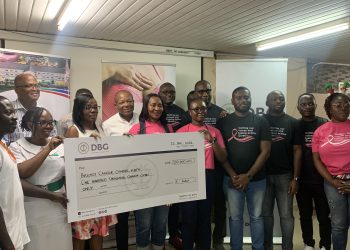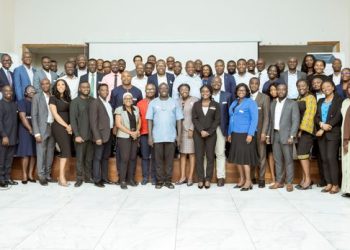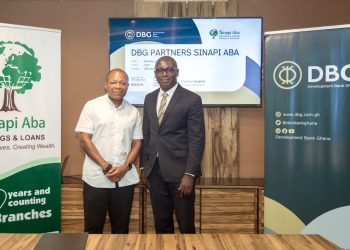When the Development Bank idea was suggested, it was generally thought that it would take a few more years to have it come to fruition. Some also wondered whether Ghana really needed a development bank and what its function was going to be. Coming on the back of the financial sector clean-up which saw the revocation of some seven local banks, it was not clear what a new state-owned bank was to achieve.
But here we are, almost set for the launch in July 2021.
One of the highlights of President Nana Akufo-Addo’s recent trip to Belgium is the 170 million euros that was secured from the European Investment Bank to facilitate the establishment of Development Bank Ghana.
The Finance Minister, Ken Ofori-Atta on the weekend after the facility was secured for the bank, re-echoed a worrying challenge in the nation’s economy; the current state of its agricultural and manufacturing sectors. He attempted to position the 100 billion-cedi Ghana Cares Obaatampa program and the Development Bank Ghana (DBG) as the solution.
A Development Bank simply is a specialized financial institution set up to encourage economic development by promoting investment and entrepreneurial activity in a developing economy and promote the national development agenda through development finance and close technical support to viable projects from the priority areas of the government. The bank does this by mobilizing funds from domestic and foreign sources.
As I listened to the Finance minister, I desperately wanted to be optimistic, to be hopeful, to believe that the Ghana Cares project together with the DBG was truly the answer to the woes of the agricultural and manufacturing sectors but I did not succeed. Hopefully, you can help me get a clearer idea and better appreciation for it.
The Facts of the Finance Minister’s Presentation
Mr Ofori-Atta started by pointing out the fact that last year, the agricultural sector received about 4% of bank loans while the manufacturing sector received 8%. To put things into perspective, the service sector received 26.6% of total credit in 2020.
Agriculture
Last year, as the nation battled with a pandemic, the agricultural sector recorded the highest growth (2.5%) while service and manufacturing contracted by 2.6% (in the second quarter) and 14.3% (in the second quarter) respectively.
The question I ask is why have our banks failed to adequately resource the agricultural sector that contributes 19.7% to the country’s Gross Domestic Product (GDP), absorbs about 33.5% of the labour force, and also accounts for over 30% of the nation’s export earnings? If the reasons given for not providing adequate funds to the sector are legitimate (perhaps the terrible nature of our roads, challenges with accessing inputs locally, inability to form cooperatives to ensure the value chain is reliable and other risks), what difference will the Ghana Cares and DBG make if they simply provide affordable funds to our agricultural entrepreneurs?
Manufacturing
A recent World Bank report revealed that the manufacturing sector declined by 14% in the second quarter of 2020. The research firm, Konfidants, also shared that beyond the obvious economic shocks of the coronavirus pandemic, challenges like erratic power supply, dependence on foreign inputs, and poor productive capacity, all contributed to the situation with the nation’s manufacturing capacity. According to the Finance Minister, the primary concentration of DBG will be, “agribusiness, with a focus on off-farm value-chain activities, manufacturing”. He also mentioned ICT and affordable homes but that’s not the focus of this piece so I will leave those alone.
The Finance Minister reminded us that, “many industrialized countries have development banks or similar institutions to provide investment finance to their SMEs or to encourage investment in new and promising, but risky economic activities.” He cited examples like the “Japan Development Bank, Korean Development Bank, Development Bank Singapore, Brazilian Development Bank, KfW (Germany) and Development Bank Nigeria.”
With the exception of Nigeria, I’m not too sure how many of these other countries had to deal with road network challenges, inadequate access to inputs, erratic power supply, and poor productive capacity issues. If they had these issues and were still able to help their entrepreneurs grow without solving those first, then we will be fine as well. If they solved these challenges first, then we may benefit from doing the same.
When you take a critical look at our agricultural sector or even have a few conversations with Agric-entrepreneurs, one of the biggest challenges they will tell you about is the poor nature of our roads and the role that plays in depriving them of access to market. For those in the processing space, one of the biggest challenges is the cost of production. After sourcing locally, employing local talent, manufacturing locally, our entrepreneurs in the agriculture and manufacturing space still have to deal with the challenge of competing with cheap imports. In a market where consumers make decisions on price points, it is pretty clear which product will be picked up on the shelves of our supermarkets.
In the spirit of optimism, I welcome the Ghana Cares program and the DBG. But I also have to be realistic and admit that the challenges with our roads, erratic power supply, access to local inputs, may still not make our local businesses in the agriculture and manufacturing space competitive (especially if we are not able to place tariffs on the imported versions of the products they make locally). So I ask again, is Development Bank Ghana the solution to our manufacturing and agriculture challenges? What more could the government be doing to help entrepreneurs in this space to succeed so they can take full advantage of the Development Bank Ghana?
Maybe, we will have to be measured in our expectations of the new DBG in other not to be disappointed because, though well-intentioned, there are structural challenges that will militate against the hopes we have of the two sectors.
—
The writer, Dziffa Ametam, is co-host of Breakfast Daily which airs on Citi TV every weekday from 7:30-10am.











